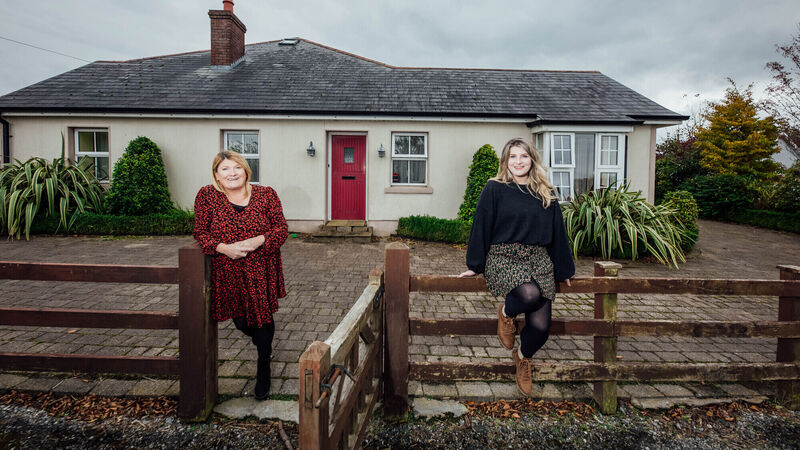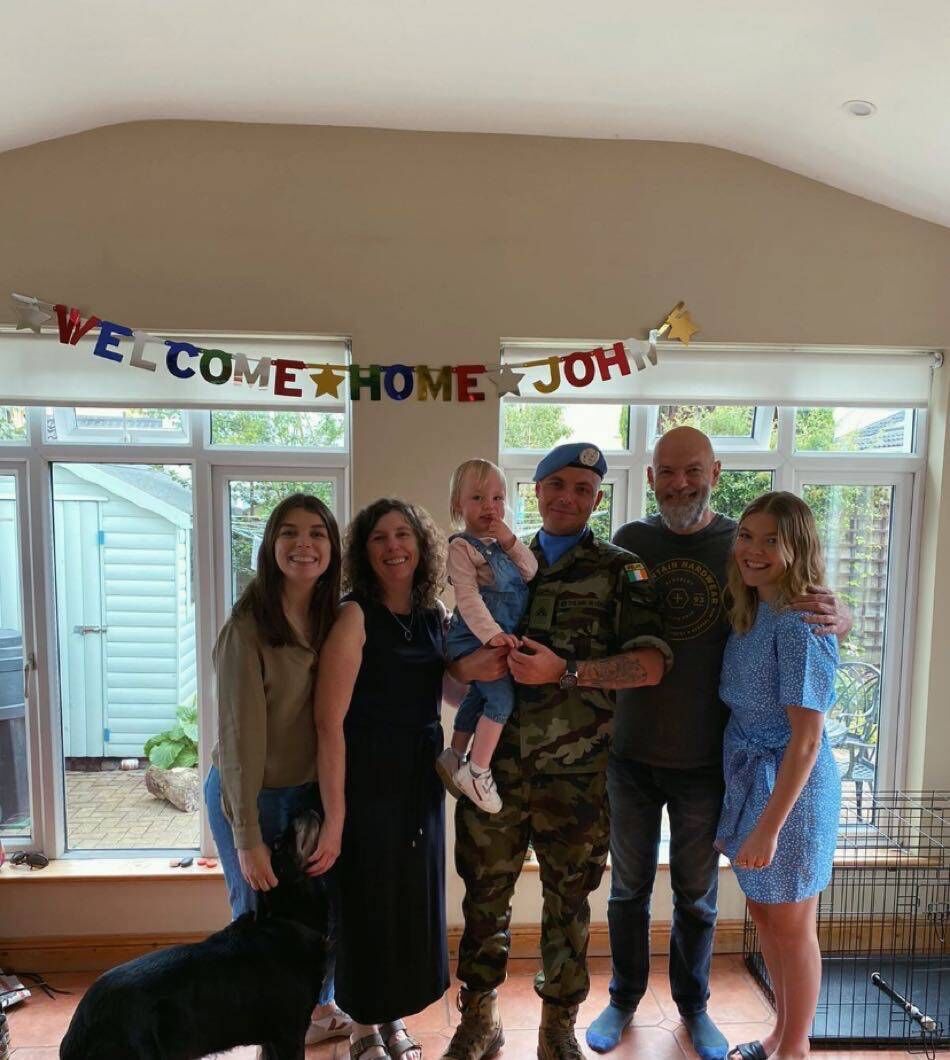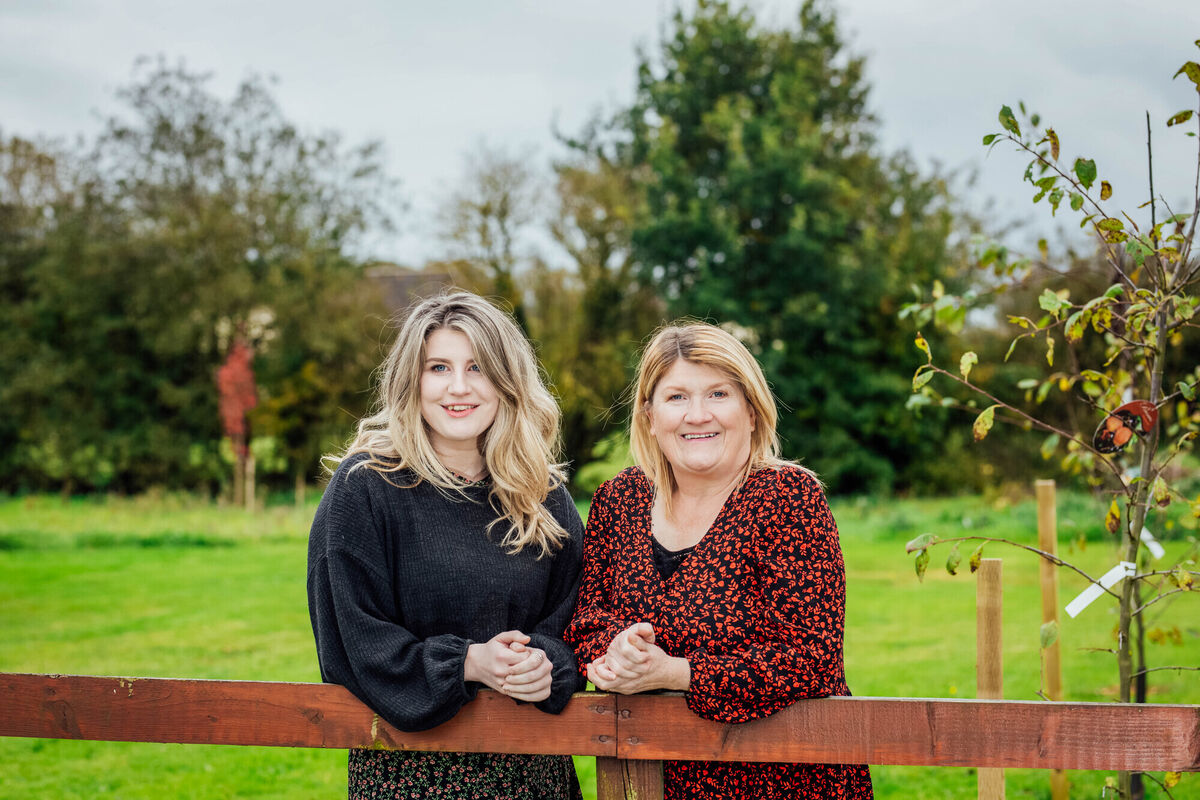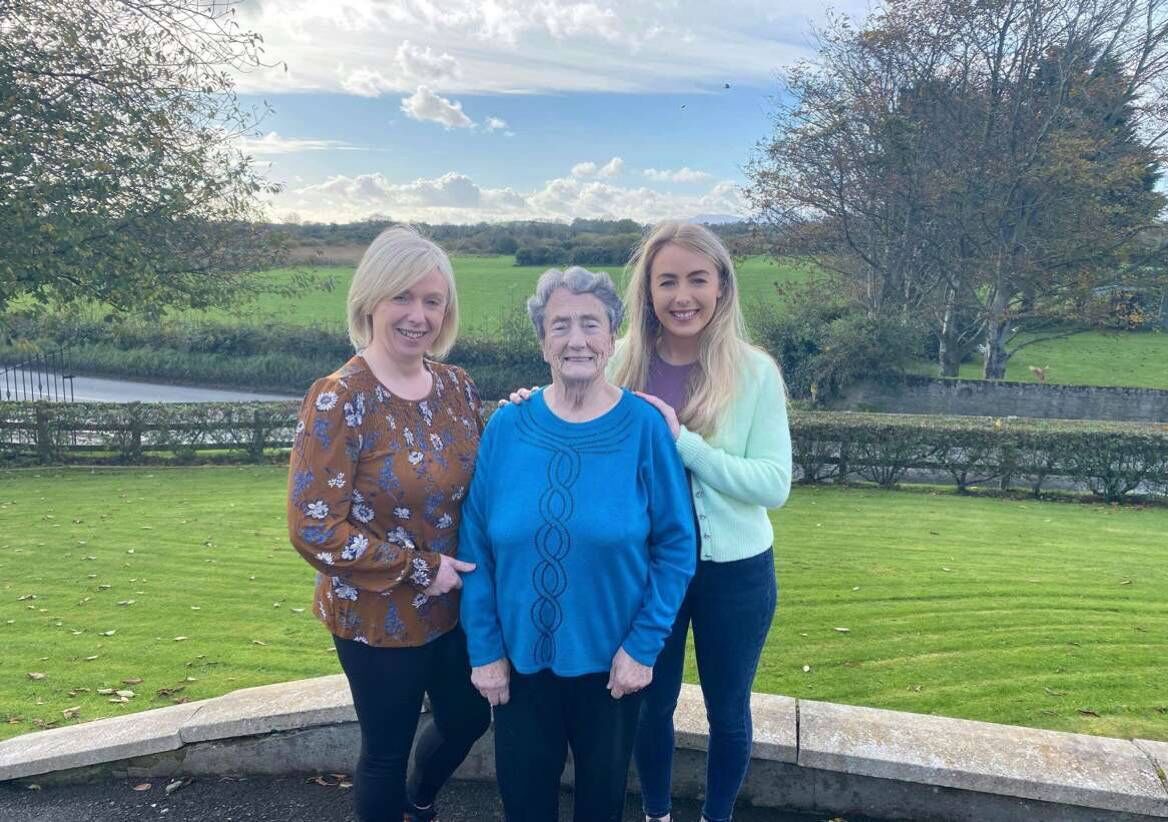Reeling in the years: Covid and the boomerang generation

Katrina Murray and her mother Stephanie are getting used to being cooped up together again at home in Co. Offaly Photo: Brian Arthur
Covid-19 has brought us all somewhere we never thought we’d be.
For many of the 'boomerang generation', that place is back home to ride out the pandemic with mum and dad.
It was revealed in a study released in February that Ireland had one of the highest rates of young people living with their parents in Europe, 78% of those between 16 and 30.
These numbers can only be rising as more young adults move home to study, lose their jobs due to the pandemic, or choose to give up expensive rental accommodation in favour of working remotely in the homeplace.
“It’s very well to say that young people have been online all their lives and this is how they operate but they’ve never experienced anything like this,” says James McCormack, head of counselling at NUI Galway.
“They're used to having peer support. Going for a coffee with their mates, meeting people for lunch, and they're not doing that anymore.
“Young people who have lived away have experienced a lot of freedom. They have relationships; social, sporting, even sexual or romantic relationships that won’t work in the home place.
“Research shows that anxiety affects around 49% of young people. Some 80% will manage fine, 20% at some point will struggle and 5% will end up in crisis.
“It’s a big transition for families. When you’re cooped up together, you have to get on and that might not work for everyone. For some people, the home might not be a haven.”
Treasa Fox, spokesperson for Psychological Counsellors in Higher Education Ireland, says that some young people have thrived since moving home and are finding that their anxieties are lowered without the additional stresses, like financial stresses, of living away.
“But developmentally, they are at the stage where their peers are the most important group,” she adds.
“This has particularly affected members of LGBTQ+ community. This is usually an important time in their journey of discovery and it’s been disrupted, some people may not be out to their families also.
“Young people and their parents are regressing. They’re going back to keeping an eye on the kids and the kids are going back to telling their parents where they’re going.”
“It’s not all doom and gloom but they’re a vulnerable group who have faced devastating losses and we need to change our assumptions of how well they may be adapting.”

Ruth Kelliher has experienced a lot of these effects since lockdown forced her back to her family home in Celbridge, Co. Kildare.
After graduating in 2018 and working for a year, she moved back in with her parents to study for her FE1 exams and plan her dream move to New York City.
She had never been happier when she got her visa stamped in the US Embassy last March, only to walk back into the lobby and see the Taoiseach announcing a nationwide lockdown on television.
“I was hopeful that I’d still get to go, but it eventually hit me that I wasn’t getting to New York any time soon,” she says.
“I couldn’t put my life on hold anymore but also couldn’t find a job, so I decided to do a masters.”
Originally, Ruth had envisioned herself travelling abroad to pursue her masters degree, but it soon became clear that the furthest she was getting from home was Cork.
She applied to UCC in July and decided to stay with her parents when it was announced the course would take place online.
Resettling was tougher than she thought.
“I went from being really independent to having my parents ask where I’m going when I leave the house,” she says.
“I’m 24 and I feel like I’m a child. Having to be dependent on them is frustrating.”
Though Ruth struggled with the situation at the start, she’s found a silver lining.
“It’s easy to focus on the things you’re missing out on but I’ve taken a step back to really appreciate my parents.
“All of this has made me realise that being around my family is what I really want. I thought I’d be happy in New York or travelling the world but I’m happier than I’ve ever been.
"My brotheris finally home after serving with the army in Lebanon and he lives close by so I get to watch my niece grow up. I can also support my sister, who's my best friend, while she works on the front lines as a doctor.
"I've learned that it’s not where you are but who you’re with... and how much wine you can get your hands on.”

Katrina Murray also decided to move back in with her parents when her masters course went online, converting her childhood playroom into a personal lecture hall.
“It’s an isolating feeling, studying from home,” Katrina says. “Small problems can seem larger than life. It’s easy to get anxious and feel like a lone soldier.”
“It’s tough only being able to talk to my parents, who I’ve taken to calling my housemates, much to their annoyance,” she laughs.
The future teacher says that she’s coping well with moving back after five years away, but things would be better if she could go out at the weekends.
“I miss my freedom,” she says. “While this my home it’s not my house. You still have to check in with your parents.”
“A lot of my conversations also now revolve around mothballs and which I didn’t see in my future, or that the highlight of my week aged 24 would be doing the shopping with Mam.”
However, she says the upsides outweigh the downsides - and the mothballs.
“Overall, I’m happy where I am and to have my mam around. I do wish I could leave part-time though.”
Katrina's mother Stephanie says that she’s noticed a lot of extra laundry since her oldest daughter moved home, but is happy that Katrina can focus on her studies.
“It doesn’t feel like she ever left really, besides the extra washing and cooking I have now,” Stephanie laughs.
“I do feel for her because she can’t go anywhere and I think it might close in a bit on us during winter, but we’ll manage.”
“So basically Mam's delighted but Dad says I’m a nuisance wherever I’m situated,” Katrina laughs via Zoom, while getting kicked out of Stephanie's makeshift office.
Anna Vaughan also moved out of her family home five years ago, attending NUI Galway and UCD before securing her current job with a Dublin law firm.
Before the pandemic hit, she had found the perfect apartment to rent with her boyfriend, was getting to know her colleagues, and spent the weekends trying out new restaurants with her friends. Then, lockdown began.
“Too long,” Anna says when asked to estimate how long it’s been since she returned to the family home in Saul, Co Down.
“We moved out in March but kept paying rent until August because we really thought we’d be back. But here we are seven months later.”
“I'm a homebird,” she adds. “Now that I’m back full-time though I don’t know how long I would have lasted. I miss my life in Dublin and that feeling of being on track.
“But, I’m working from a table we brought in from the deck so I’d like to think it’s only temporary.”
The Vaughan household is currently home to Anna, her sister, her parents, her grandmother Noreen and the family dog.
So, Annasays she was lucky to get the deck table to herself.
“There can be some distractions, between the dog, my nanny and blaring on TV,” she laughs.

Anna says that there are upsides to moving home, including financial savings and getting to spend time with her school friends, who are all in the same situation.
“It ebbs and flows, it can be claustrophobic sometimes but I feel safe here too,” she says.
Anna says that it’s hard not knowing when she’ll be moving out again, as her office isn’t set to return anytime soon, but the family are making it work - for now.
“What I’ve learned since she moved back is that nothing has changed. She still doesn’t clean anything,” Donna Vaughan laughs via Facetime as her daughter hugs her from behind. ”She can cook a little better than when she left, but that’s probably it.”
“Well I’m delighted she’s here,” Noreen chimes in. “I’d be worrying about her when she’s away.”
Donna, who has been relegated to working from her bedroom, says that her and her husband Paul are happy to have a full house again, for the time being.
“It’s funny how quickly you get used to having them around again,” she says.
“I feel better that she’s here though and we’re glad to be able to help. As long as we can get rid of her again.”





